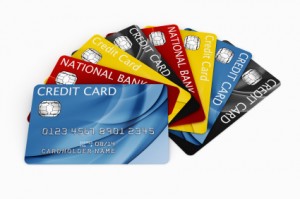 The ones you decide to apply for depend on your needs and your credit rating. People with good credit ratings will get the better deals; people just starting out may have to settle for a preset limit card.
The ones you decide to apply for depend on your needs and your credit rating. People with good credit ratings will get the better deals; people just starting out may have to settle for a preset limit card.
Go to the free credit card finder now and compare credit cards before applying!
There are several types of credit cards available to you such as those with a preset spending limit, a revolving charge arrangement, and a card where the full balance is due each month. There are even pre-paid cards that can be loaded with a set amount of cash, and most times, reloaded as you need to.
What are some types of credit cards I can apply for?
For young people who are just starting out or people who are rebuilding their credit after a bankruptcy, a preset limit credit card or a prepaid credit card may be the only types of credit cards they can qualify for. The preset limit card is issued with a set amount that the card issuing institution deems you can handle. There will generally be a minimum monthly payment and a yearly credit card fee.
Be sure to read the cardholder agreement, which will give all the details not normally seen in an ad for the card. Make sure that the interest rate isn’t too high. They sometimes are as these type cards are a method for high-risk individuals and people with poor credit and generally carry higher interest rates because of this. Ask if the rate will come down after a specified time with the company demonstrates good payment habits and if the credit limit will rise with time as well.
Almost anyone can get a prepaid credit or debit card, your bank will almost certainly have them available and many retail merchants offer prepaid debit cards which look and act like credit cards for all intents and purposes. These cards are a good way to manage student expenses for example, as most of them can be recharged with new cash deposits as needed.
There is generally a small fee for these cards, five dollars to start one is not uncommon. There may be additional fees accessed with each new deposit, and if not used by a certain date, more fees can be assessed against the card. Be careful, these fees can consume the entire balance you have deposited over time, don’t let this type card sit idle, it is a use it or lose it situation.
How do traditional credit cards work?
The traditional credit card arrangement for established people with good credit is the revolving charge card. It will have an upper limit of how much you charge to it and it will have a schedule of monthly payments for set balance amounts plus interest. For example, an outstanding balance of $50 - $100 may require a $5 per month payment. These minimum monthly credit card payments go up with larger balances that you may carry on the card. These cards also offer cash advances, but be aware that these funds come at a higher interest rate that is charged for purchases.
These traditional credit cards come in many sizes, shapes and flavors, so read all the information you can about exactly what it is they are offering, how long they are offering it for and what it may become in the future. Introductory rates will expire and can expire in as few as 45 days, so you need to find out what they climb to and when. If you are transferring a balance, make sure the card will cover the entire carry over balance at the rate advertised; sometimes, only a certain amount of the transferred balance is subject to the low rate they are touting.
Where can I get consumer information on the companies issuing these cards?
General information on credit cards can be found at USA.gov. The Federal Reserve Board also offers good information at their site. Consumer Action also has a good survey of companies and what to look for.
Go to the credit card chaser to compare credit cards now!








